Symposium Participants
Leading Early Career Researchers from Japan and Germany
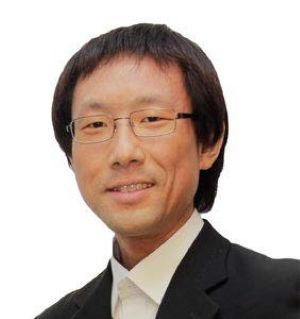
Dr. rer. nat. Akimitsu Narita
Co-Chair
Assistant Professor
Organic and Carbon Nanomaterials Unit, Okinawa Institute of Science and Technology Graduate University
Japan
Website →Akimitsu Narita received his Bachelor’s and Master’s degrees at the Department of Chemistry, the University of Tokyo, and obtained his doctorate at the Max Planck Institute for Polymer Research (MPIP) in Mainz, Germany, in 2014 (Dr. rer. nat. granted by Johannes Gutenberg University of Mainz). In the same year, he became a project at MPIP. In 2018, he joined Okinawa Institute of Science and Technology Graduate University (OIST) as an Assistant Professor (Adjunct) to lead the Organic and Carbon Nanomaterials Unit. Since 2020 he works full-time as an Assistant Professor at OIST. His current research focuses on the precision synthesis and characterizations of functional molecular nanocarbon materials based on the methods of organic chemistry and surface science as well as exploration of their potential applications.
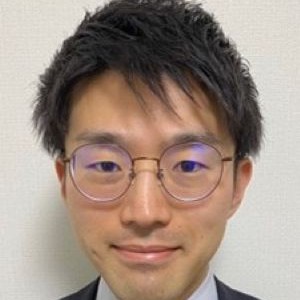
Dr. Akira Takahashi
Speaker
Assistant Professor
Department of Chemical Science and Engineering, Institute of Science Tokyo
Japan
Website →My research focuses on the functionalization of polymers through the incorporation of specific molecules with defined properties and reactivities. The introduction of such characteristic structural motifs enables the creation of polymers with tailored functions and controlled performance. My academic background is in organic chemistry and polymer chemistry, covering both synthetic methodology and the study of structure–property relationships. Current interests include the design of functional polymers to regulate thermal properties, mechanical properties, and water solubility via highly selective polymer reactions.
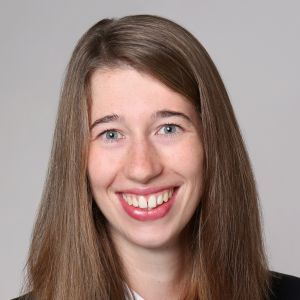
Dr. Alina Hermann
Speaker
Project Manager
Creavis, Research, Development & Innovation, Evonik Operations GmbH
Germany
Website →Alina Hermann graduated with a master’s degree in chemistry from RWTH Aachen University, where she also completed her PhD in 2022 under the supervision of Prof. Dr. Sonja Herres-Pawlis. During that time, she completed a research stay in the group of Prof. Dr. Antoine Buchard at the University of Bath. Since 2022 she has gained industrial R&D experience, working as a project manager on sustainable projects at Evonik. In her current position she focuses on circular polymers, identifying future circularity trends and new business developments.
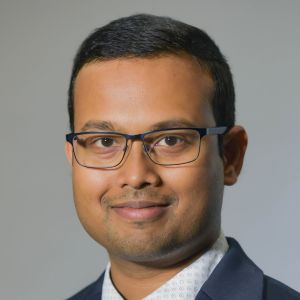
Dr. Aniket Pal
Speaker
Jun.-Prof.
Institute of Applied Mechanics University of Stuttgart
Germany
Website →Aniket received his Bachelor’s degree from Jadavpur University, India. He then completed his PhD in Industrial Engineering from Purdue University, USA, under the supervision of Prof. Ramses V. Martinez. Following his PhD, Aniket joined the group of Prof. Metin Sitti at the Max Planck Institute of Intelligent Systems, Germany, as a postdoctoral researcher, supported by the Humboldt research fellowship. Since September 2023, Aniket leads the Soft Robot Mechanics Group as a tenure-track junior professor at the University of Stuttgart, Germany. Supported by the Emmy Noether Programme, Aniket’s research focusses on soft robotics and mechanical metamaterials, with a focus on mechanical instabilities.
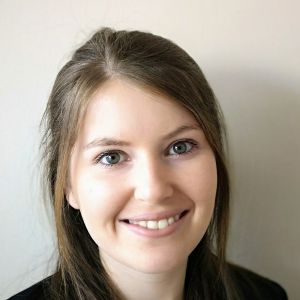
Anna-Sophia Wilde
General Participants
Research Assistant
The Technische Universität Braunschweig Institute of Machine Tools and Production Technology
Germany
Website →Anna-Sophia Wilde holds a masters degree in technology-oriented management from the Technische Universität Braunschweig. She will be finishing her PhD under the supervision of Prof. Dr.-Ing. Christoph Herrmann at the Technische Universität Braunschweig Institute of Machine Tools and Production Technology - Chair of Sustainable Manufacturing and Life Cycle Engineering in 2025. Her present research is focused on advancing the Circular Economy as a strategy to address global sustainability challenges and reduce environmental impacts. A key emphasis lies on integrating data-driven and knowledge-based engineering approaches to optimize circular production processes across production systems. The aim is to improve decision-making, enhance resource efficiency, and accelerate the development of reliable and applicable solutions with a focus on circular polymer production processes.
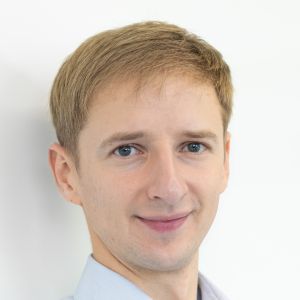
Dr. Anton Melnikov
General Participants
MEMS Lead Designer
Bosch Sensortec GmbH
Germany
Anton Melnikov received his Diploma in Mechanical Engineering from the Technical University Dresden in 2012 and his M.Eng. in Applied Computational Mechanics from the University of Applied Sciences Ingolstadt in 2016. He earned his Dr.-Ing. at the Technical University of Munich in 2020 under the supervision of Prof. Steffen Marburg, during which he also conducted a guest research stay on acoustic metamaterials at UNSW Canberra and UTS Sydney. Following his PhD, he joined the Fraunhofer Institute for Photonic Microsystems, working on MEMS actuators and sensor systems. Since 2022, he has been Design Lead for acoustic MEMS devices at Bosch Sensortec GmbH, focusing on product development and innovation at the interface of research and industry. His research interests include vibroacoustics, noise control, acoustic metamaterials, MEMS actuators and sensor systems, and the design of next-generation acoustic MEMS devices.
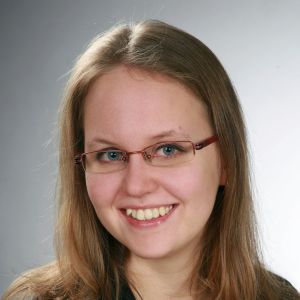
Dr. Brigitta Dúzs
General Participants
Postdoctoral Researcher
Johannes Gutenberg University Mainz
Germany
Website →Brigitta earned her diploma degree in Chemistry from Eötvös Loránd University in Budapest, Hungary, where she later completed her PhD in 2021 under the supervision of Prof. István Szalai. Her doctoral research focused on nonlinear reaction–diffusion pattern formation in chemical systems. Following this, she joined the Life-Like Materials and Systems Group of Prof. Andreas Walther at Johannes Gutenberg University Mainz, Germany, as an Alexander von Humboldt Postdoctoral Research Fellow. Since February 2024, she has been leading her independent international collaborative project on Next Generation Neuromorphic Soft Matter Devices, funded by the Volkswagen Foundation. Her research combines nonlinear (bio)chemical reaction networks, including synthetic DNA circuits, with chemo-responsive 3D-printed hydrogels to create autonomous information-processing metamaterials for applications in adaptive functional materials and soft robotics.
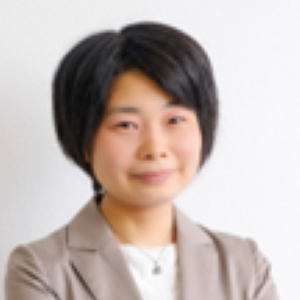
Dr. Chiho Watanabe
General Participants
Associate Professor
Graduate School of Integrated Sciences for Life, , Hiroshima University
Japan
Website →Chiho Watanabe holds Bachelor’s and Master’s degrees in Engineering from Tokyo University of Agriculture and Technology (TUAT). In 2015, she completed her PhD in Condensed Matter and Interfaces at Université Paris Diderot (Paris 7), supervised by Prof. Miglena I. Angelova. She then conducted postdoctoral research in Prof. Miho Yanagisawa’s group, first at TUAT and later at the University of Tokyo, focusing on macromolecular crowding and cell-size effects. She became Assistant Professor at the Graduate School of Integrated Sciences for Life, Hiroshima University in 2020, and Associate Professor in 2023. Her current research centers on artificial cell models and active droplets: investigating interactions between lipid membranes and dementia-related proteins, as well as life-like dynamics in droplet-based model systems.
Dr. Christoph Spiegel
Speaker
Researcher
Blasco Group Institute for Molecular Systems Engineering and Advanced Materials Heidelberg University
Germany
Website →Christoph A. Spiegel received his B.Sc. and M.Sc. degrees in Chemistry from ETH Zurich (Switzerland). He completed his PhD in 2023 under the supervision of Prof. Dr. Eva Blasco at Heidelberg University, where he focused on the design of programmable materials for light-based 4D printing at the macro- and microscale. He then continued as a researcher in the Blasco group. His present research focuses on developing innovative polymeric materials for light-based 3D/4D printing, with an emphasis on integrating smart functionality and designing sustainable materials through the use of bio-based feedstocks and the implementation of biodegradability. His work contributes to the Blasco group’s goal of creating the next generation of adaptive, environmentally friendly material platforms for light-based 3D/4D printing.
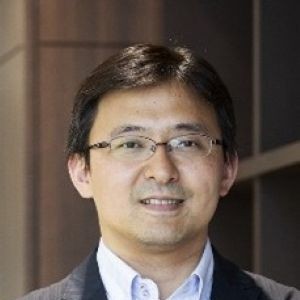
Daisuke Yamada, M.Sc.
General Participants
Division Manager
Innovative technology division, Toyota Central Research and Development Laboratories, Inc.
Japan
Website →Daisuke Yamada earned his master's degree in mechanical engineering in 2003 and joined Toyota Central R&D Labs, Inc., where he has been engaged in research in the fields of ergonomics and automotive engineering. From 2016 to 2019, as a visiting researcher at Harvard University, he planned and conducted medical-engineering collaboration project related to automotive comfort. He currently manages research fields involving machinery, materials, humans, and life sciences. His research interests focus on elucidating the mechanisms of life, particularly the mechanisms of emotions and decision-making arising from the coupling of the brain-nervous system and physical system. He is also interested in applying these insights to engineering, designing industrial products and commercial services that enrich people's lives.
Ellen Rumley
General Participants
Postdoctoral Researcher
Department of Robotic Materials, Max Planck Institute for Intelligent Systems, Stuttgart
Germany
Website →Ellen Rumley is a NSF GRFP research fellow who received her PhD in 2024 from the Department of Mechanical Engineering from the University of Colorado Boulder. Under the supervision of Dr. Christoph Keplinger, she obtained her degree while working as a visiting researcher at the Max Planck Institute for Intelligent Systems in Stuttgart, Germany. Her main thrusts of research involved designing fully biodegradable electrohydraulic artificial muscles for driving lifelike robots, as well as in designing magnetically-reconfigurable actuating modules for driving versatile high-speed robots. She is currently a postdoctoral researcher in the process of concluding a project investigating the influence of environmental climate on the charge accumulation mechanisms within electrohydraulic artificial muscles. In parallel she is currently organizing the first Science Policy School for the Max Planck Society and is in the midst of transitioning into a career conducting policy research for robotics and AI in Germany.
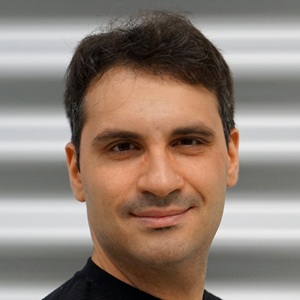
Jun.-Prof. Dr. Gianluca Rizzello
General Participants
Assistant Professor
Saarland University
Germany
Website →Gianluca Rizzello was born in Taranto, Italy, in 1987. He received the master's (Hons.) degree in control engineering from the Polytechnic University of Bari, Bari, Italy, in 2012. He received his Ph.D. in Information and Communication Technologies from Scuola Interpolitecnica di Dottorato, a joint program between Polytechnic Universities of Torino, Bari, and Milano, Italy, in 2016. Since 2020, he is currently a Tenure Track Assistant Professor of Adaptive Polymer Systems at Saarland University, Saarbrücken, Germany. His research interests include modeling, control, and self-sensing of soft robotic and mechatronic systems based on functional material transducers.
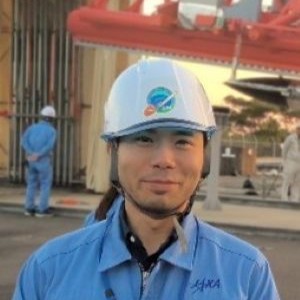
Dr. Hiromi Yasuda
Speaker
Assistant Professor
Institute of Space and Astronautical Science(ISAS), Japan Aerospace Exploration Agency(JAXA)
Japan
Website →Hiromi Yasuda is an Assistant Professor at the Institute of Space and Astronautical Science (ISAS), Japan Aerospace Exploration Agency (JAXA). He received his Ph.D. degree in Aeronautics and Astronautics from the University of Washington (2018), M.S. degree in Mechanical Engineering from the University of Washington (2014), and B.S. degree in Aerospace Engineering from Nihon University (2011). His research has been directed towards developing novel architected materials and structures, such as mechanical metamaterials, granular crystals, and 3D printed lattices, for aerospace engineering applications. His research on nonlinear wave propagation in origami-based metamaterials has been featured in more than 25 news outlets, including NSF News, Reuters, and Phys.org. He has received the JSME M&M Best Presentation Award, the JSASS Young Scientist Award, and the IASS Hangai Prize.
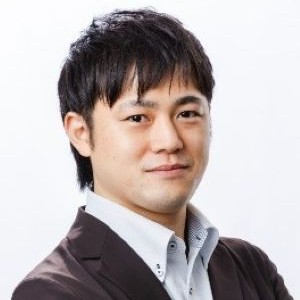
Dr. Hiroya Abe
Speaker
Assistant Professor
Frontier Research Institute for Interdisciplinary Sciences (FRIS), Tohoku University
Japan
Website →My research background is in polymer materials and electrochemistry, with a focus on bioinspired engineering and bio electrochemical devices. Representative work includes heme-inspired iron molecular catalysts as cathode catalysts for fuel cells that outperform platinum; this technology led to the founding of the university spin-out AZUL Energy Inc. In parallel, we developed biomedical materials and devices of mussel-inspired polydopamine materials, microelectrodes for monitoring neurotransmitters, and microneedle devices for on-skin sensing and transdermal drug delivery. Our group develops interdisciplinary solutions at the interface of polymers, electrochemistry, and biomedical engineering.
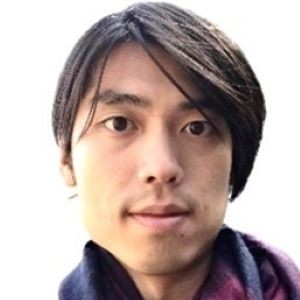
Dr. Hiroyoshi Hamada
General Participants
Senior Research Chemist
Films and Film products Research Laboratories, Toray Industries, Inc.
Japan
Website →Hiroyoshi Hamada is a Senior Research Chemist at Toray Industries, Inc., where he focuses on hydrogen-bonding polymeric materials for optical and interactive films. His current work centers on piezoelectric polymers and their applications in haptic devices. He earned his Ph.D. in Chemistry from the University of Tokyo in 2020 under the supervision of Prof. Eiichi Nakamura, specializing in organic synthesis and materials chemistry for optoelectronic devices, including light-emitting diodes and solar cells.
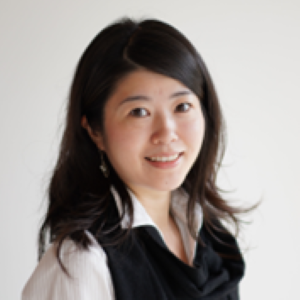
Dr. Kaori Sugihara
Speaker
Associate Professor
Institute of Industrial Science, The University of Tokyo
Japan
Website →Kaori Sugihara received her Dr. Sc. at ETH Zurich (2012). After being a postdoctoral fellow at Max Planck Institute for Intelligent Systems (2012-2014) and an Assistant Professor at the University of Geneva (2014-2020), she joined Institute of Industrial Science at the University of Tokyo as a Lecturer in 2020 and promoted as an Associate Professor in 2023. Her main research interest is electrical and mechanical characterization of self-assembled lipid nanostructures.
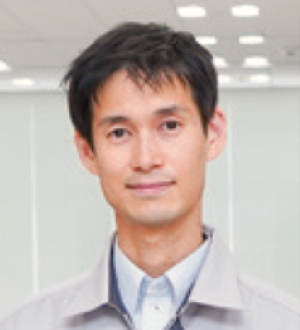
Dr. Koichi Murata
General Participants
Assistant Manager
Startup Incubation Center, Shimadzu Corporation
Japan
Website →Koichi Murata received a Ph.D. in Human Informatics from the University of Tsukuba in 2017, completing the Ph.D. Program in Empowerment Informatics. Following that, he worked as a researcher at the Technology Research Laboratory at Shimadzu Corporation, where he focused on the research and development of wearable devices and measurement systems for estimating human emotions. In 2020, his team gathered research collaborators to utilize their developed Multi-Device Physiological Measurement System, “HuME.” He led the verification of the prototype with collaborators facing challenges in practical applications, successfully demonstrating its usefulness while also investigating customer needs and making improvements accordingly. His current work focuses on launching a new business using HuME within the startup business division in collaboration with the research institute.
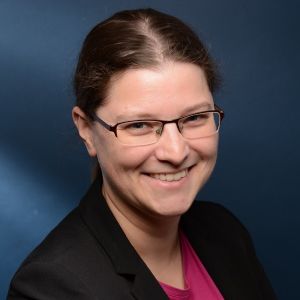
Prof. Kristin de Payrebrune
Speaker
Chair for Computational Physics in Engineering
RPTU Kaiserslautern-Landau
Germany
Website →She holds a diploma degree in Mechanical Engineering from Leibniz University Hannover. Under the supervision of Professor Matthias Kröger, she obtained her doctorate (Dr.-Ing.) in Mechanical Engineering at TU Bergakademie Freiberg in 2013 with a thesis on the analysis and modeling of process–structure interactions in tool grinding. Thereafter, she worked as a DFG Research Fellow in the Department of Mechanical Engineering at the University of California, Berkeley (USA), where she joined the Dynamics Laboratory from 2014 to 2016. From 2017 to 2019 she was Junior Professor at TU Kaiserslautern in the Faculty of Mechanical and Process Engineering, Chair of Applied Structural Mechanics. Since November 2019 she has been Full Professor at RPTU Kaiserslautern-Landau, where she holds the Chair of Computational Physics in Engineering. Her present research focuses on computational mechanics and multiscale modeling of complex material and structural systems, with particular emphasis on process–structure–property relationships in engineering applications. In addition, she investigates modeling and design concepts for soft robotic systems, aiming to exploit the interplay of material properties, structural design, and functionality.

Dr. Malte Misol
General Participants
Research Associate
German Aerospace Center (DLR) Institute of Lightweight Systems, Adaptronics Department
Germany
Website →Malte Misol holds a Master of Science in Mechatronics from Hamburg University of Technology. He finished his PhD in Mechanical Engineering at Technical University Braunschweig in 2014. He has been working in the Institute of Lightweight Systems of German Aerospace Center (DLR) as Research Associate since 2007 and, since 2017, additionally serves as lecturer at Otto von Guericke University Magdeburg. As visiting scientist at Helsinki University of Technology and Nanyang Technological University Singapore, he worked in the fields of control engineering, signal processing and machine learning. His current work at DLR focuses on the acoustics of lightweight structures with an emphasis on noise reduction through smart structures and systems.
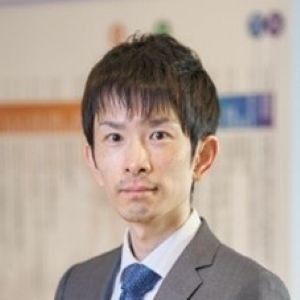
Dr. Naoki Mori
Speaker
Associate Professor (Lecturer)
Materials Evaluation & Engineering Laboratory at the University of Osaka
Japan
Website →Naoki Mori finished his PhD at Department of Aeronautics and Astronautics, Kyoto University in 2017. Thereafter, he worked as Assistant Professor at Ritsumeikan University and moved to the University of Osaka in 2020. Since 2023, he has been Associate Professor (Lecturer) in Materials Evaluation & Engineering Laboratory at the University of Osaka. His present research is focused on exploring wave and vibration mechanics in layered structures, aiming to develop (1)viscoelastic characterization techniques by ultrasonic spectroscopy for adhesive joints andcoatings and (2) high-frequency ultrasonic-assisted adhesive bonding. Based on the knowledgeabout guided waves and local resonance in thin-walled structures, he is also engaging in thedesign of metasurfaces between solids for controlling elastic wave transmission.
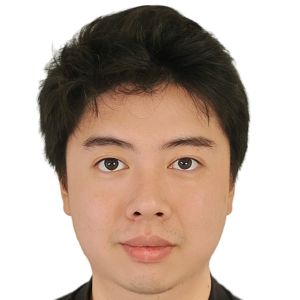
Dr. Qingchuan Song
General Participants
Postdoc
Laboratory of Process Technology, NeptunLab, Department of Microsystems Engineering (IMTEK), University of Freiburg
Germany
Website →Qingchuan Song received his Doctoral degree in 2025 from the Technical Faculty, Department of Microsystems Engineering (IMTEK), Albert-Ludwigs-University Freiburg. His work centers on advanced functional elastomers and materials manufacturing using high-resolution Digital Light Processing (DLP) 3D printing. Dr. Song's research includes three key areas: Multi-Material systems: Developing a robust, single-step soft-hard DLP technique to create complex pneumatic components, like self-sealing valves and threaded connectors, by ensuring superior interface bonding. Shape memory elastomers: Introducing the first 4D-printed Shape Memory Elastomer that maintains elasticity in its programmed state, enabling multi-modal motion for soft robotics and artificial muscles. Fluoroelastomers: Synthesizing a novel, highly elastic fluoropolymer for 3D printing that resists aggressive organic solvents. This material enables the fabrication of durable microfluidic valves and peristaltic pumps for complex flow chemistry applications.
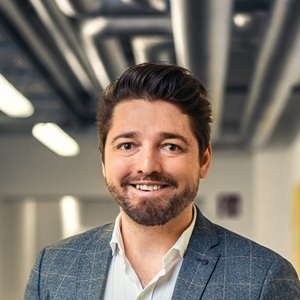
Dr. Quinn Besford
Speaker
Group Leader
Leibniz Institute of Polymer Research Dresden
Germany
Website →Dr. Quinn Besford completed his PhD in 2016 at The University of Melbourne, Australia, specialising in statistical mechanics of polar liquids. He then joined the ARC Centre of Excellence in Convergent Bio-Nano Science and Technology, working with Prof. Frank Caruso, developing new functional nanomaterials for theranostics. He came to IPF Dresden in 2019 as an Alexander von Humboldt fellow, hosted by Prof. Andreas Fery. Since 2022, he has been leading the “Functional Polymer Architectures” research group at IPF Dresden. His team focuses on developing functional polymeric materials for sensing, which leverages fluorescence-coupling methods in polymer brushes, nanoparticles, and free chains. On the other hand, his team develops novel nanoparticle and hydrogel systems for therapeutic applications, mainly focused on in-blood interactions for improved drug delivery.
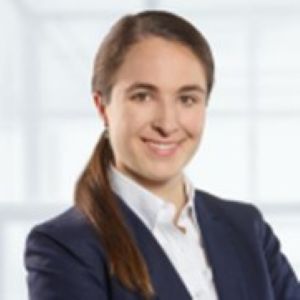
Dr. Sarah Fischer
Co-Chair
Head of Research Department
Fraunhofer Institute for Nondestructive Testing(IZFP)
Germany
Website →Dr. Sarah Fischer holds a B.Sc. and M.Sc. in Materials Science and Engineering from Saarland University. She finished her PhD at the Leibniz Institute for New Materials in Saarbrücken studying mechanics of bioinspired surface structures in 2018. Thereafter, she joined Apple's polymer engineering team in California to work on industrial applications of adhesives and R-strategies. In 2019, she was awarded a Fraunhofer Attract grant to join Fraunhofer IZFP as an independent researcher and develops innovative experimental mechanics methods for complex materials at the interface of research and industry. Today, she is head of the department for circular sensor materials and sensor systems. Her research focuses on measurement technology and the multimodal investigation of circular material systems, particularly functionally integrated materials and acoustically active metamaterials.
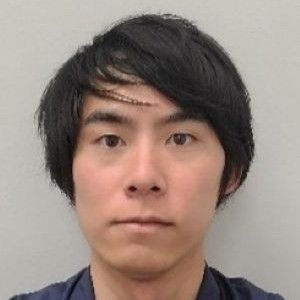
Shigeru Kitahata, M.Sc.
General Participants
Researcher
Mitsubishi Electric
Japan
Website →Shigeru Kitahata holds a master’s degree in applied chemistry from the Kobe University. After graduating from the graduate school of Engineering at Kobe university in 2016, he started his carrier as a corporate researcher at Advanced Technology R&D Center in Mitsubishi Electric Corp. He has been engaged in research and development in a department dealing with environmental-friendly plastic materials and material analysis, so he has accumulated specialized knowledge and know-how about plastic engineering and plastic-recycling technology. In addition, in 2024, he obtained the national qualification of 1st grade Plastic Injection Molding Technician. His present research is focused on plastic recycling technology, such as high precision sorting, additive formulation, compounding process, and injection molding technology for improving the quality of recycled plastics.
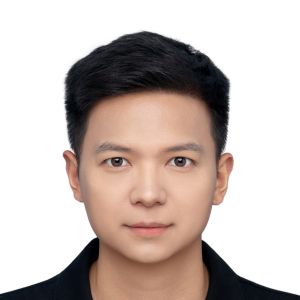
Dr. Tao Yang
General Participants
Postdoc Reseacher
Chair of Vibro-Acoustics of Vehicles and Machines, Department of Engineering Physics and Computation, TUM School of Engineering and Design, Technical University of Munich
Germany
Website →Tao Yang holds a Ph.D. in Textile Engineering from the Technical University of Liberec, Czech Republic (2019), where he worked on advanced fibrous materials for acoustic performance under the supervision of Prof. Rajesh Mishra. He subsequently joined the Institute for Nanomaterials, Advanced Technologies and Innovation at the Technical University of Liberec as a Postdoctoral Researcher (2019–2022), studying acoustic and thermal properties of porous materials. Since November 2022, he has been a Marie Skłodowska-Curie Fellow at the Chair of Vibro-Acoustics of Vehicles and Machines, Technical University of Munich. His present research focuses on acoustic metamaterials, porous materials, and acoustic energy harvesting, with emphasis on inverse characterization and optimization.
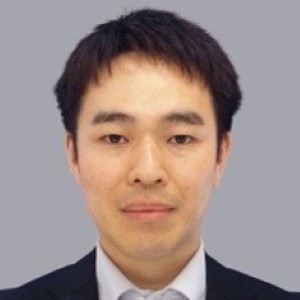
Dr. Tomohisa Kojima
General Participants
Associate Professor & Principal Investigator
The Materials Science and Engineering Laboratory of Saitama University
Japan
Website →Tomohisa Kojima holds a Ph.D. degree in Mechanical Engineering from Tokyo Institute of Technology. He finished his doctoral studies under the supervision of Prof. Kazuaki Inaba and Prof. Kikuo Kishimoto in 2017, focusing on the dynamics of fluid-structure interaction with wave propagation. From 2017 to 2019, he worked as an Assistant Professor in the Strength of Materials Laboratory at Meiji University, and from 2019 to 2024 in the Computational Strength of Materials Laboratory at Chuo University. Since 2024, he has been an Associate Professor and principal investigator of the Materials Science and Engineering Laboratory at Saitama University. His current research focuses on the mechanical response of mechanical metamaterials, particularly their dynamic behavior and wave propagation phenomena.
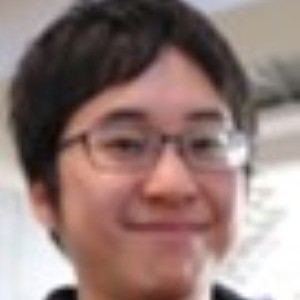
Dr. Tomoki Himiyama
General Participants
Researcher
Molecular Biosystems Research Institute, National Institute of Advanced Industrial Science and Technology (AIST)
Japan
Website →Tomoki Himiyma studied chemistry at Osaka University, where his research focused on protein functionalization and catalysis until 2016. From 2016 to 2018, he worked at Toyota Central R&D Labs., conducting research on mesoporous materials for catalytic applications. Since 2018, he has been a researcher at AIST, focusing on the chemical functionalization of biopolymers to develop new functional materials. In particular, he has been involved since 2021 in the development of paramylon-based biobased materials, which hold strong potential for future applications and social implementation.
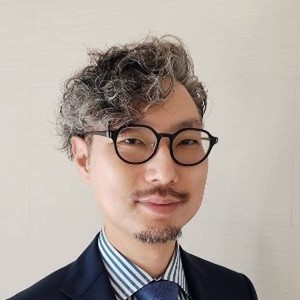
Dr. Tomoya Takatani
General Participants
Project Manager
R-Frontier Department, Frontier Research Center, Toyota Motor Corporation
Japan
Website →Tomoya Takatani received his Ph.D. from the Nara Institute of Science and Technology, Japan, in 2006, where he conducted research on blind acoustic signal separation using unsupervised learning algorithms. In the same year, he joined Toyota Motor Corporation and has since been engaged in applied research in machine learning and artificial intelligence, with applications in areas such as speech communication robots, brain-machine interfaces, and chatbot systems. From April 2022 to March 2025, he was seconded to the Toyota Konpon Research Institute as a research coordinator. He returned to Toyota Motor Corporation in April 2025 and has continued in his role, contributing to collaborative research initiatives between in-house researchers and university academics.
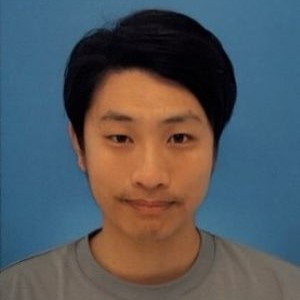
Toshitsugu Marushima, M.Sc.
General Participants
Section Leader
Spectroscopy System Development, HORIBA, Ltd.
Japan
Website →Toshitsugu Marushima majored in astro gamma ray physics at Kobe University and received Master of Science in 2019. He then joined HORIBA in 2019 and worked on the development of Raman spectroscopy and photoluminescence equipment in the deep ultraviolet to near-infrared region. In 2024, he joined HORIBA Instruments (New Jersey, USA) and engaged in research and development of spectrometers and microspectroscopy systems. Since 2025, he has been the section leader for spectroscopy system development at HORIBA.
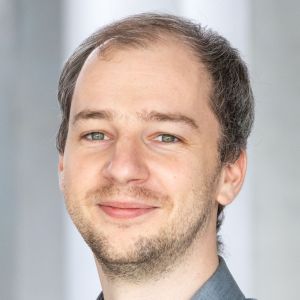
Dr. Viacheslav Slesarenko
Session Co-Chairs
Research Group Leader
Cluster of Excellence livMatS, FIT – Freiburg Center for Interactive Materials and Bioinspired Technologies, University of Freiburg
Germany
Website →Dr. Viacheslav Slesarenko is an independent research group leader at the Cluster of Excellence livMatS, University of Freiburg. He received his PhD in 2013 from Saint Petersburg State University, Russia, on amorphous-crystalline shape-memory composites. In 2015 he joined the Technion – Israel Institute of Technology as a postdoctoral fellow, researching 3D printing, compliant composites, and soft robotics. In 2019, he was awarded a Marie Curie Fellowship and moved to Germany, spending one year at the Freiburg Institute for Advanced Studies (FRIAS). He now leads a research group at the University of Freiburg. With his group, he currently explores various mechanical, elastic, and acoustic metamaterials, implementing modern machine learning techniques for their design. His work also extends to the development of new fabrication approaches and the study of advanced adaptive, reconfigurable, and life-like materials.
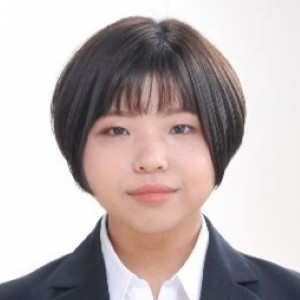
Dr. Yasuka Nassho
General Participants
Assistant Professor
Faculty of Engineering, Department of Mechanical Systems Engineering, Toyama Prefectural University
Japan
Website →Yasuka Nassho was awarded a Doctor of Philosophy in Engineering in 2021 from the Department of Mechanical Systems Engineering, Graduate School of Engineering, Toyama Prefectural University. Since April 2021, she has served as an Assistant Professor in the Department of Mechanical Systems Engineering at Toyama Prefectural University. Her specialism is Composite Materials Engineering, and she continues to conduct research on self-healing polymer composite materials containing microcapsules. Specifically, her research focuses on the microstructural optimization of carbon fiber reinforced polymers, to improve their mechanical properties and self-healing effects. Recent research has focused on the development of self-healing heat dissipation materials to create multifunctional and sustainable composite materials with high thermal conductivity over extended periods.
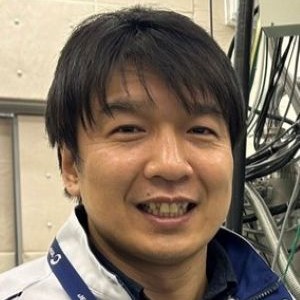
Yu Jimbo, M.Sc.
General Participants
Team Leader
JEOL Ltd.
Japan
Website →Yu Jimbo holds a master degree in Condensed Matter Physics from Tokyo Institute of Technology. Thereafter he worked in Mitsubishi Heavy Industry as a quality assurance engineer in charge of aircraft engine parts until 2012. The parts were turbine blade and case of combustor, these are used in Boeing 787. He joined current company JEOL Ltd. from 2013. He is in charge of transmission electron microscope (TEM) development JEM-ARM300F2 was developed by him. His major is electron optics and scanning system for TEM. His present researches were “Consideration of optics for Lorentz STEM and TEM” and “Development of high frame rate scanning for STEM”. He holds 7-dan of Kendo, he is playing kendo more than 30 years.
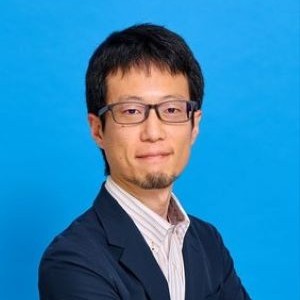
Dr. Yu Sekiguchi
Session Co-Chairs
Associate Professor
Laboratory for Future Interdisciplinary Research of Science and Technology (FIRST) , Institute of Science Tokyo
Japan
Website →My research interests are adhesion and interface/surface phenomena, including joint technologies and their durability. My specialty is mechanical engineering, particularly in the strength of materials and fracture mechanics, and I have recently been working on the evaluation of strength, toughness, and degradation of adhesive joints. Adhesive bonding is used in a wide range of products, and the products under research are also highly diverse; for example, fuel cells, car bodies, lenses, and electric devices.
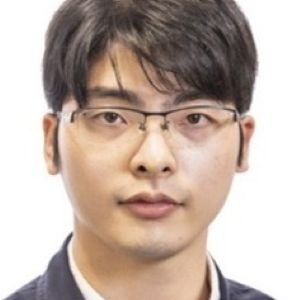
Yutaka Fukada, M.Sc.
General Participants
Group Manager
DMG MORI CO., LTD
Japan
Website →Yutaka Fukada is Group Manager at DMG MORI, based in Kyoto and Mie, Japan. With over 4 years of experience in development management and 3 years of experience in semiconductor laser production, he specializes in R&D coordination and laser fabrication process. His work has focused on research of semiconductor laser-source. Before joining DMG MORI, he was in graduate school of Keio University, where he gained valuable experience in design of mechanisms. He holds a master’s degree in mechanical engineering from graduate school of Keio University, and he is in a doctoral degree program in graduate school of Kyoto University. Outside of work, he enjoys weight training, which helps him stay balanced and inspired.
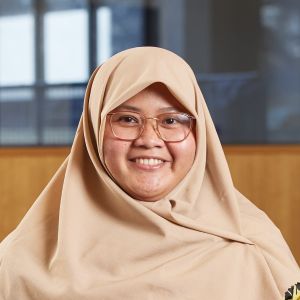
Dr. Zihnil Adha Islamy Mazrad
General Participants
Postdoctoral Research Fellow
Research Group Prof. Agarwal Advanced Sustainable Polymers, Macromolecular Chemistry II, University of Bayreuth
Germany
Website →Zihnil Mazrad holds a diploma degree in Biochemistry from Institut Teknologi Bandung, Indonesia and obtained her Master’s degree at Chungju University, South Korea. She then pursued her doctoral studies in pharmaceutical material research with Associate Professor Kristian Kempe’s group at the Monash Institute of Pharmaceutical Sciences (MIPS), Australia, and was awarded her PhD in 2023. In the same year, she worked as a Research Fellow on a joint project with Professor Colin W. Pouton at the mRNA Core of Monash University until 2025. Since February 2025, she has been a Humboldt Postdoctoral Research Fellow in the Advanced Sustainable Polymers group of Professor Seema Agarwal at the University of Bayreuth, Germany. Her current research focuses on the development of advanced nanomaterials for biomedical applications, with particular emphasis on multifunctional and smart stimuli-responsive polymers.